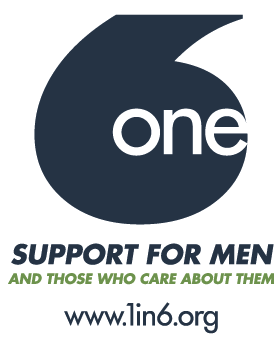You can leave this site quickly.
Learn more about Internet safety.
1in6 Thursday: Hope Wins
An ancient lesson about overcoming fear
I was reminded recently of an important lesson about trauma recovery. The teacher was the son of a friend, a young man who spoke at his bar mitzvah about the competing motivations of fear and hope.
The example he gave was based on a story from the Bible. I’ve never been a reader of the Bible and my appreciation of the young man’s wisdom had nothing to do with the religious aspects of the story, which I’d never previously heard. (My apologies in advance if I distort any details in the retelling)
What impressed me was his understanding, that for many who experience trauma, when visualizing happiness, fear is often a stronger force than hope—at least for a time.
In my work with men, I’ve found this can be especially true for men who had unwanted or abusive sexual experiences in childhood, though it is also often the case for those who experienced physical and emotional abuse as well. The prohibition imposed on boys at an early age against expressing emotions like sadness, fear, and vulnerability makes it particularly difficult to feel safe enough to address the range of negative feelings that often result from childhood abuse. The fear of shame, disbelief, or ridicule can outweigh hope and the belief that healing is possible.
According to the story, after the Israelites escaped from slavery in Egypt they were stranded in the desert. Moses sent out twelve “spies” to determine whether the land of Canaan could be conquered and become their new home. Ten of the twelve returned, overcome by fear of what they imagined would be necessary to successfully achieve the Promised Land. Some even thought it would be better to return to Egypt and the familiar experience of captivity rather than face the unknown. Only two, Joshua and Caleb, believed that happiness and success was worth the struggle. On that day, fear and despair prevailed.
We all heal at our own pace. As I understand it, it took the Israelites another 40 years wandering in the desert before they were able to move past that fear and take the steps necessary to establish a safe, productive homeland. In the meantime, the ten had died. Even Moses had died. Caleb and Joshua finally led the Israelites into the Promised Land with their message of hope.
I waited 20 years before I found the courage to face the effects of having been sexually abused as a child. I’ve met many men, who waited much longer—some 40 years or more. Each man, each woman must choose his or her own timeline. What I learned in the process of healing was that, as difficult as the struggle seemed in a given moment, every step toward recovery was better than remaining enslaved by my past.
The task for the rest of us, when supporting those we love, is, like Joshua and Caleb, to steadily, patiently, nurture hope over fear.
 - By Peter Pollard
- By Peter Pollard
Peter Pollard is the Professional Relations & Communications Director for 1in6, Inc. Peter previously worked for 15 years as a state, child-protection social worker and was the Public Education director at Stop It Now! Since 2003, he has served as the Western Massachusetts coordinator for SNAP (Survivors Network of those Abused by Priests) and also does work for a Certified Batterers Intervention Program. See Peter’s portrait in The Bristlecone Project exhibit.
The mission of 1in6 is to help men who have had unwanted or abusive sexual experiences in childhood live healthier, happier lives.
1in6's mission also includes serving family members, friends and partners by providing information and support resources on the web and in the community.
Joyful Heart and 1in6 invite you to visit 1in6.org for info, options and hope, and to learn more about our partnership and Engaging Men initiative here.
The views expressed above are not necessarily those of the Joyful Heart Foundation or 1in6.




Your Voices